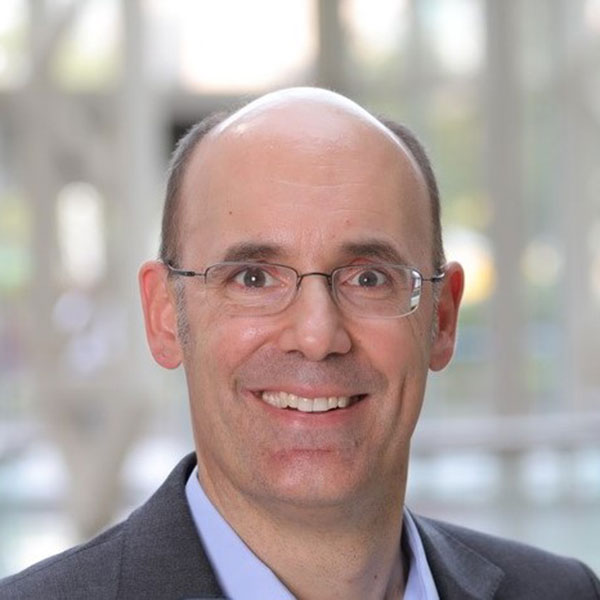
The Graduate School of Logistics in Dortmund is a unique training programme for logistics doctoral candidates in Germany. Gerald Müller of DB Schenker explains his company's commitment to the Summer School at Fraunhofer IML in an interview with “logistics ahead”.
“logistics ahead”: This year is the second time you sponsored the Summer School's Live Case Study in which participants can put their new knowledge into practice. What is this format’s benefit for your company?
Gerald Müller: After the professional work and appearances of the doctoral students last year, we saw a real win-win situation for the doctoral students and for DB Schenker in the Live Case Study concept. As a company, the format keeps us young and agile because we get impetus from the current university and research scene. And above all, we enjoyed the whole thing very much.
What do you associate with the Graduate School of Logistics in general?
The Graduate School is an institution of the TU Dortmund University, which has an excellent reputation in the field of logistics. As a company, you cannot go wrong with this. At the same time, DB Schenker and Fraunhofer IML already established a successful partnership in a so-called Enterprise Lab at the premises of Fraunhofer IML in Dortmund where employees of our company and researchers from the Fraunhofer institute work together on the application of future technologies.
What was the Live Case Study about this year?
The teams had the task of actively supporting us in the conception of our E-Motion project on which we are working together with Fraunhofer IML and the start-up MotionMiners. It is about the idea to use sensors to generate transaction data in the packaging and picking sub-processes and link them to our database via a platform. We expect this to significantly simplify the analyses and improve the visualisation of movements, which will run optimally in terms of ergonomics, since we also want to use these data to program avatars as “perfect examples”. This would be a quantum leap in comparison to today's employee training.
Did the participants' solutions meet your expectations?
The solutions gave us important impetus for our project, which we already implemented into our concept. The concept of one group was even so visionary that it would go beyond the scope of our project. At school, one would probably have said: “Unfortunately, you missed the point”. However, we are grateful for the inspiration and subject matter for further projects.
ABOUT THE AUTHOR
Gerald Müller is Head of Process and Efficiency Management at Schenker Deutschland AG in Frankfurt. The Process and Efficiency Management division covers the topics “Industrial Engineering with a focus on MTM Process Analyses”, “Solution Design/Simulation” and “Digital Engineering focusing on 3D Visualisation and Training Concepts with Gamification”.
MORE ABOUT THE TOPIC
Unique model nationwide
The Graduate School of Logistics (GSofLog) offers a PhD education fully supported by third-party sponsoring. This model is unique. Companies support the outstanding scholars with a financial base to focus on their research for three years. The education is structured and practice-oriented to ensure a maximum benefit for every stakeholder. Company representatives, scientists and scholars are in a constant exchange sharing expertise. For extensive, cross-linked and interdisciplinary challenges, the GSofLog establishes scholarship classes. Research, practice and training are merged in the modern spaces at the logistic campus ensuring a highly inspiring working environment. See more information about the GSoFLog here.
In the Graduate School of Logistics´ Summer School participants from different countries and disciplines, international scientists and experts from Centre of Excellence Logistics and IT work closely together for one week. Following the mission statement of the Graduate School, the programme provides a balanced mix of theoretical foundations and practical implementation. In addition to keynotes, the Summer School offers hands-on workshops in the laboratories of Fraunhofer IML and a Live Case Study in a company. Participants act in interdisciplinary groups, create new ideas and work on specific examples from the business world. The 4th Summer School der Graduate School of Logistics will take place from 8 to 12 July 2019. See more information about the Summer School here.
 Fraunhofer Institute for Material Flow and Logistics IML
Fraunhofer Institute for Material Flow and Logistics IML